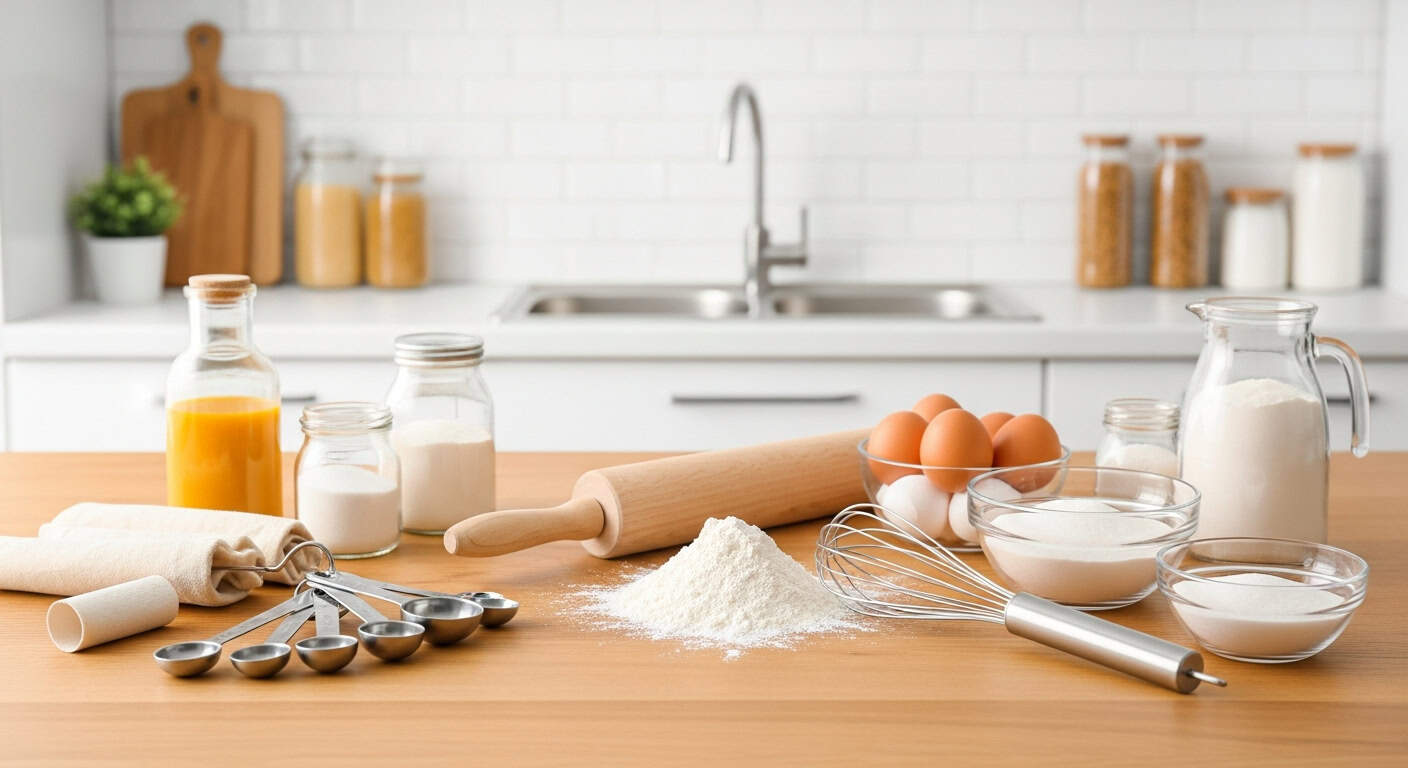Struggling to Sleep? These 16 Foods Work Better Than Counting Sheep
Achieving a restful night’s sleep can be challenging, with many individuals turning to various remedies to find relief. However, incorporating specific foods into your diet may naturally support healthy sleep cycles. Certain nutrients found in everyday foods can promote relaxation and enhance sleep quality. Understanding the science behind these foods can offer a more effective and natural approach to improving your sleep patterns.
1. Almonds

Almonds are rich in magnesium, a mineral that plays a crucial role in muscle relaxation and sleep regulation. A 1-ounce serving of almonds provides approximately 77 milligrams of magnesium, contributing to the recommended daily intake. (medicalnewstoday.com) Additionally, almonds contain melatonin, a hormone that helps regulate the sleep-wake cycle. (simonandschuster.com) Consuming a small handful of almonds before bedtime can support steady melatonin levels and promote relaxation. Unlike highly processed snacks, almonds offer protein and healthy fats, which help keep blood sugar stable overnight. Their combination of nutrients makes them an effective and balanced bedtime food. (mykitchenhacks.com)
2. Turkey

Turkey is a well-known source of tryptophan, an essential amino acid that aids in the production of serotonin and melatonin, hormones crucial for regulating mood and sleep cycles. (publichealth.columbia.edu) However, the amount of tryptophan in turkey is comparable to that found in other protein-rich foods, such as chicken, cheese, and nuts. (foodnetwork.com) Therefore, while turkey can contribute to overall nutrient intake, its role in inducing sleepiness is minimal. (scientificamerican.com)
3. Kiwi
Kiwi fruit is rich in antioxidants, vitamin C, and serotonin. Studies suggest that eating kiwi about an hour before bed can help some people fall asleep faster. (psychologytoday.com) Its natural sugars are less likely to cause energy spikes than candies, making it a smart, sleep-friendly dessert alternative. The fiber in kiwi also supports digestive health, which can reduce nighttime discomfort. (ndtv.com)
4. Chamomile Tea

Chamomile tea contains apigenin, an antioxidant that binds to certain brain receptors, promoting relaxation and sleepiness. (pmc.ncbi.nlm.nih.gov) Herbal teas like chamomile have been used traditionally for centuries as natural sleep remedies. Unlike caffeinated beverages, chamomile is gentle and soothing, making it ideal for those winding down after a long day. It’s also known to help reduce mild anxiety symptoms. (news7health.com)
5. Walnuts

Walnuts provide a natural source of melatonin and healthy fats, both of which support restful sleep. They’re also a plant-based source of omega-3 fatty acids, which have been tied to reduced anxiety and better sleep quality. (pmc.ncbi.nlm.nih.gov) Compared to sweet evening snacks, a small portion of walnuts satisfies hunger without disrupting blood sugar. Their nutrients synergize to create a calming effect. (blog.peaknutritionscience.com)
6. Tart Cherry Juice

Tart cherry juice boasts high levels of natural melatonin, a hormone that regulates sleep-wake cycles. (pubmed.ncbi.nlm.nih.gov) Studies indicate it can help increase sleep time and improve overall sleep quality, especially for those struggling with insomnia. (pubmed.ncbi.nlm.nih.gov) Compared to sugary drinks, the juice has minimal added sugars and packs a potent antioxidant punch. Sipping a small glass about an hour before bed may lead to more restful nights. (sleepfoundation.org)
7. Bananas

Bananas are a convenient source of magnesium and potassium, both essential for relaxing muscles and nerves. (healthline.com) Their carbohydrates also support serotonin production in the brain, setting the stage for restful sleep. Unlike overly sweet desserts, bananas are gentle on digestion and naturally filling. Pairing a banana with a spoonful of nut butter creates a balanced bedtime treat. (drfarrahmd.com)
8. Oatmeal

Oatmeal is a complex carbohydrate rich in melatonin and B vitamins, which play a role in regulating sleep. (wellandgood.com) Consuming a small bowl in the evening can stimulate insulin production, facilitating the entry of tryptophan into the brain and promoting sleep. (wellwisp.com) The warm, comforting texture of oatmeal helps the body unwind, much like a cozy glass of warm milk. (oprah.com)
9. Fatty Fish

Fatty fish like salmon, mackerel, and sardines are rich in omega-3 fatty acids and vitamin D, both of which play a role in regulating sleep-inducing serotonin. (todaysdietitian.com) Research indicates that individuals who regularly consume fatty fish report improved sleep quality and duration. (pubmed.ncbi.nlm.nih.gov) Unlike fried or heavily seasoned fish that may cause discomfort, simply grilled or baked fatty fish supports rest and offers a satisfying meal. (neurologyadvisor.com)
10. Yogurt

Yogurt provides calcium, an important mineral in the body’s melatonin production process. (pubmed.ncbi.nlm.nih.gov) Opt for plain, low-sugar yogurt to avoid late-night sugar spikes and sluggishness. The live probiotics in yogurt also support gut health, which is linked to more restful sleep. (pmc.ncbi.nlm.nih.gov) When topped with fruit or nuts, yogurt becomes a comforting, nourishing nightcap. (scientificorigin.com)
11. White Rice

White rice has a high glycemic index, which can help shorten the time it takes to fall asleep if eaten a few hours before bedtime. (pubmed.ncbi.nlm.nih.gov) Its easily digestible carbohydrates cause a gentle increase in insulin, helping tryptophan reach the brain. (pmc.ncbi.nlm.nih.gov) Compared to heavy, spicy dinners, a small bowl of white rice is light yet satisfying, making it a safe choice for a late meal. (avogel.co.uk)
12. Lettuce

Lettuce, particularly the romaine variety, contains lactucarium, a milky fluid with mild sedative properties. (en.wikipedia.org) However, the concentrations of lactucarium in lettuce are relatively low, and its sedative effects have not been conclusively demonstrated in humans. (health.clevelandclinic.org) While incorporating lettuce into an evening salad or tea may offer a light, nutritious option, its sleep-inducing benefits remain unproven. (health.howstuffworks.com)
13. Pumpkin Seeds

Pumpkin seeds are rich in magnesium, zinc, and tryptophan, nutrients that support sleep quality. Magnesium aids in muscle relaxation and nerve function, while zinc plays a role in immune health and mood regulation. Tryptophan is an amino acid that the body converts into serotonin and melatonin, hormones essential for regulating sleep. Consuming a small portion of pumpkin seeds before bedtime can promote relaxation and improve sleep quality. Unlike processed snacks, pumpkin seeds are minimally processed and can be enjoyed on their own or added to salads and yogurts as a nutritious, sleep-friendly option. (atriumhealth.org)
14. Herbal Teas (Lemon Balm, Valerian Root)

Lemon balm and valerian root teas have been traditionally used to alleviate sleep disturbances. Lemon balm (Melissa officinalis) is known for its calming properties, which may help reduce anxiety and promote relaxation, potentially improving sleep quality. (bettersleep.org) Valerian root (Valeriana officinalis) has been utilized for centuries as a natural remedy for insomnia and anxiety, with studies suggesting it can decrease the time it takes to fall asleep and improve overall sleep quality. (bettersleep.com) Unlike caffeinated beverages or sugary sodas, these herbal teas are naturally calming and caffeine-free, making them ideal choices to incorporate into an evening routine.
15. Cottage Cheese

Cottage cheese is rich in casein protein and tryptophan, making it a slow-digesting option that helps maintain steady blood sugar through the night. (shape.com) Eating cottage cheese before bed is linked to muscle recovery and restful sleep, especially in those who are physically active. (scientificorigin.com) Mix with fresh berries for extra flavor without added sugars. (themattressbuyerguide.com)
16. Honey

A spoonful of honey before bed can support the brain’s use of tryptophan, thanks to its natural sugars. (enviroliteracy.org) Honey gently raises insulin, allowing more tryptophan to enter the brain and induce sleepiness. (elizabethrider.com) Unlike processed sweets, honey’s antioxidant content and mild sweetness offer a natural way to end the day. Stir into herbal tea for a comforting bedtime ritual.
Conclusion

Incorporating specific foods into your evening routine can significantly enhance sleep quality. Nutrients like tryptophan, melatonin, magnesium, and vitamin D, found in foods such as nuts, dairy, and certain fruits, play vital roles in promoting relaxation and regulating sleep cycles. Beyond improving sleep, these foods offer additional health benefits, including supporting heart health and reducing inflammation. While dietary adjustments can aid in achieving better rest, persistent sleep issues may require consultation with a healthcare professional. (nm.org)
.article-content-img img { width: 100% }





